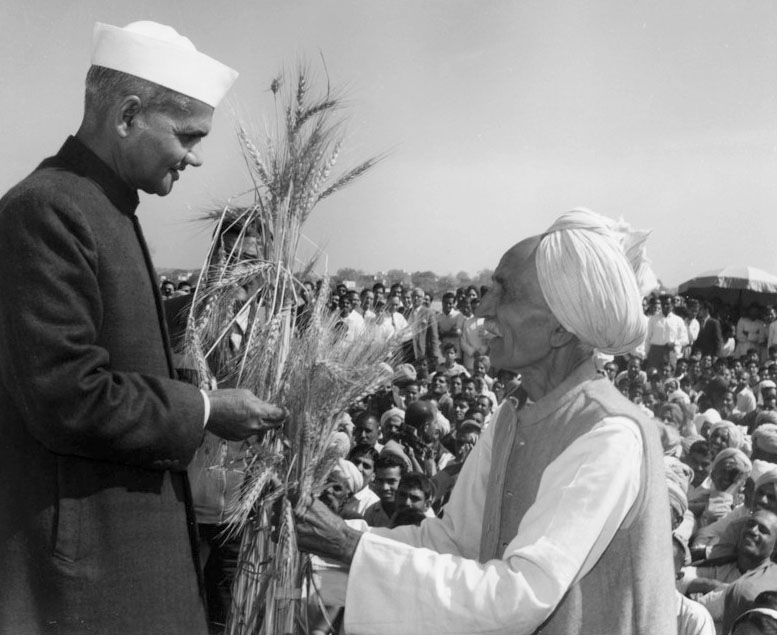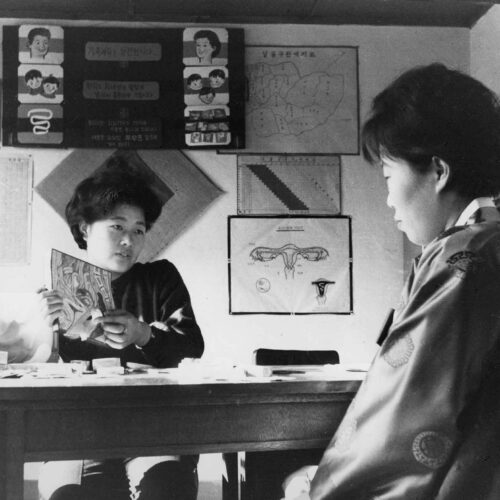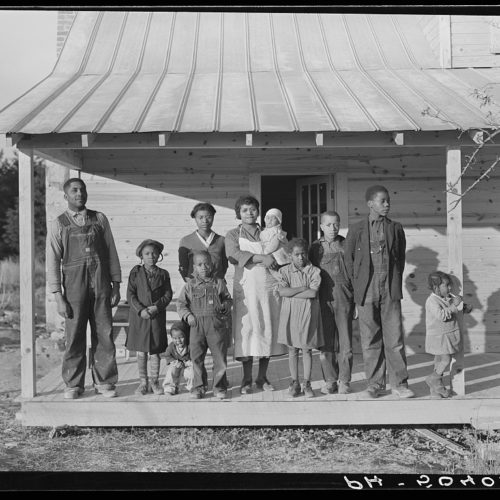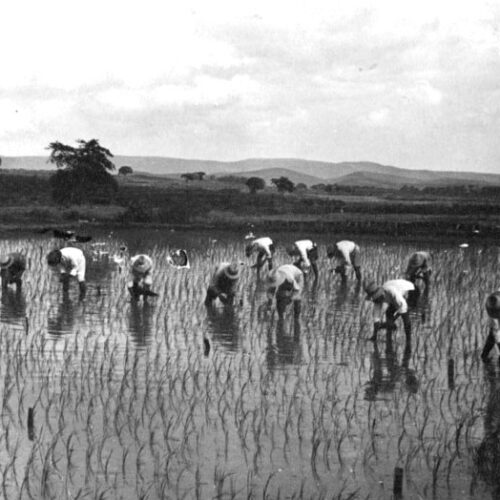In this latest edition of New Research, we offer readers a chance to view some recent archives-related publications. Available here are newly published reports submitted by RAC travel stipends recipients who have spent time immersing themselves in archival records during their time in our reading room. These reports showcase the diversity of collections that are in our holdings and how they have been used. These reports span different time periods, geographic areas, and disciplines. This group of reports cites records from the Ford Foundation, the China Medical Board, and the Rockefeller Foundation, and the papers of Nelson A. Rockefeller.
“Reservoir Gods: Rivers, Experts, and the Making of the Multipurpose Reservoir, South India, c. 1880-1970” by Aditya Ramesh
In “Reservoir Gods: Rivers, Experts, and the Making of the Multipurpose Reservoir, South India, c. 1880-1970,” Aditya Ramesh looks at the impact of US foundations on South India. The Rockefeller Foundation and Ford Foundation both offered their experience and expertise to this “food basket” region of India, but in different contexts and in different decades. Dr. Ramesh first traces the “ecological studies” that the Rockefeller Foundation conducted during the late British colonial era to better understand the malaria vectors that appeared in the delta region after the construction of irrigation dams and infrastructure. He then analyzes the Ford Foundation’s engagement with India after its independence, focusing on efforts in the 1960s to increase food production.
The Ford Foundation provided extensive funding to the government plan known as the Intensive Agricultural Districts Programme, promoting a new high-yielding variety of rice known as ADT27. Dr. Ramesh explains that the archival documents he reviewed at RAC were also very revealing of aspects of the daily lives of the people and the technologies they employed in this agrarian region.
Aditya Ramesh is an assistant professor of history at the University of Washington. He was previously a presidential fellow in environmental history at the University of Manchester. He has a particular interest in environmental history and history of infrastructure and technology in South Asia. Dr. Ramesh was a 2023 RAC research stipend recipient.
“The Role of the China Medical Board in the Development of Radiation Diagnosis and Therapy in Postwar Taiwan” by Hsiao-Ling Chen
This report, “The Role of the China Medical Board in the Development of Radiation Diagnosis and Therapy in Postwar Taiwan,” provides insight into the impact of the changing geopolitical landscape after World War II, both on the work of philanthropy and on medicine. The China Medical Board needed to redirect its philanthropic work following the creation of the People’s Republic of China, which severed its ties with the Peking Union Medical College. At this very time, Taiwan transformed from a colony of Japan to coming under the rule of Chinese Nationalist government, which had fled the mainland.
This Cold War arena also became an important region for US aid, both military and economic. As Dr. Chen notes, as a result of these changes, Taiwanese medicine shifted from a Japanese model to a US one, at the same time that the US-based China Medical Board found a new place (one of many) for its philanthropic efforts to “modernize” medicine in East and Southeast Asia. Hsiao-Ling Chen’s report focuses on the integration of new radiation technologies into cancer diagnosis and treatment. Exploring the archives of the China Medical Board at RAC, the researcher found that the institution was instrumental in supporting hospital construction, training, and research to further this medical “modernization” effort.
Hsiao-Ling Chen was a 2023 RAC stipend recipient who came to RAC to conduct research that was temporarily sidetracked by the COVID-19 closures. While therefore not able to incorporate findings from our archives’ holdings into their Case Western Reserve University dissertation, Dr. Chen had a post-pandemic opportunity to continue studies on the development of postwar Taiwan medicine.
“Latin American Education and the Good Neighbor Policy: Exploring the Projects of the Office of Inter-American Affairs” by Rafaela Silva Rabelo
Rafaela Silva Rabelo’s research at RAC looked at the work of the Office of Inter-American Affairs (OIAA) in bolstering US-Latin American relations during World War II. The OIAA was created in 1940 by the Council of National Defense, as a new component of President Roosevelt’s Good Neighbor Policy. In the lead-up to US participation in the war, its mandate was to help ensure that Latin America could withstand attempts by Axis powers to gain influence in the hemisphere. Nelson Rockefeller was appointed coordinator of this geographically-defined agency, which was not directly under State Department oversight. Her report, “Latin American Education and the Good Neighbor Policy: Exploring the Projects of the Office of Inter-American Affairs,” concentrates on the OIAA programs relating to primary and secondary education. The goal of the agency was to undermine any attempts by Axis powers to try influence in Latin American countries’ educational systems.
The researcher observes that much of the scholarship till now has focused largely on other aspects of the work of the OIAA, particularly intellectual exchanges, media-driven projects such as a series of Disney films aimed at Latin American audiences, and cultural diplomacy. Researching in the papers of Nelson Rockefeller at RAC, she identified valuable records documenting the educational programs of the OIAA, including teacher exchanges and vocational education initiatives. Rafaela Silva Rabelo also notes that following the defeat of the Axis powers, the OIAA lost its reason for being. Instead of being re-oriented to a postwar world, many of its educational and cultural diplomacy-related functions were simply absorbed into the work of the State Department.
Rafaela Silva Rabelo has a Ph.D. in the history of education from the University of São Paulo. She is an adjunct professor at the School of Education, Universidade Federal de Uberlândia in Minas Gerais, Brazil. Her research interests include transnational history of education, intellectual exchanges between Brazil and the USA, Pan-Americanism, and the Good Neighbor policy. She was a 2020 RAC research stipend recipient.
“Science and Diplomacy’s Mutual Collaboration: Pan American Perspective on Chilean Agriculture and the Green Revolution” by Felipe Eduardo Trujillo Bilbao
Felipe Eduardo Trujillo Bilbao’s report, “Science and Diplomacy’s Mutual Collaboration: Pan American Perspective on Chilean Agriculture and the Green Revolution,” provides insight into the resources at RAC that were valuable for his study of Chilean agricultural development. Central to his study are records in the Rockefeller Foundation archives which, as he explains, have assisted him in constructing “a picture of Chilean agronomical graduate formation, agronomical research, and state-building from 1940 to 1970.” While at RAC, the researcher also explored the records of the Ford Foundation. His intent is to contextualize these agricultural developments in the broader stories of the Green Revolution, which not only shaped modern agricultural development, but was itself also impacted by local needs and agendas.
Trujillo Bilbao enlarges his story one step further; he views this chapter in Chilean agricultural history as a component of efforts towards a Pan American vision articulated by Nelson Rockefeller, initially as coordinator of the Office of Inter-American Affairs in the early 1940s and, later, in his political career. Trujillo Bilbao argues that this particular notion of hemispheric solidarity is an important aspect of both Cold War geopolitics and philanthropic agendas of the era.
Felipe Eduardo Trujillo Bilbao is a doctoral student at the Instituto de Historia, Pontificia Universidad Catolica de Chile. His interests include the history of science and science diplomacy. He was a 2023 RAC research stipend recipient.
About the RAC Research Stipend Program
The Rockefeller Archive Center offers a competitive research stipend program that provides individuals up to $5,000 for reimbursement of travel and accommodation expenses. Learn more on our Research Stipend page.



